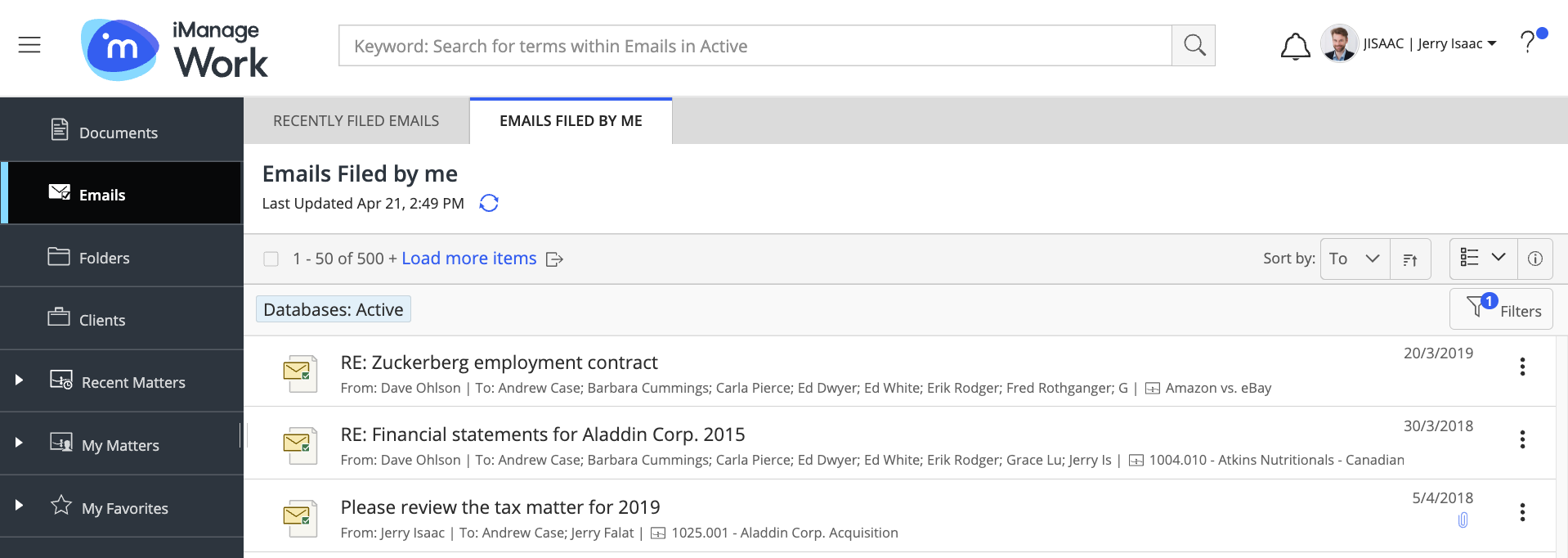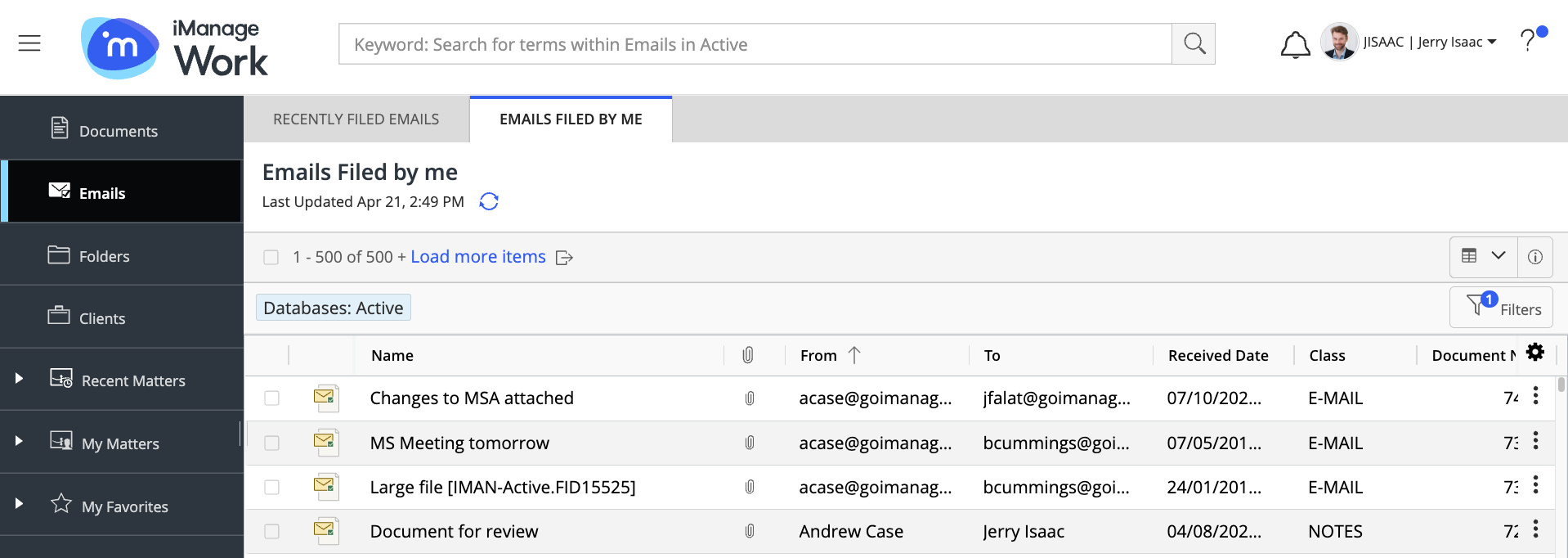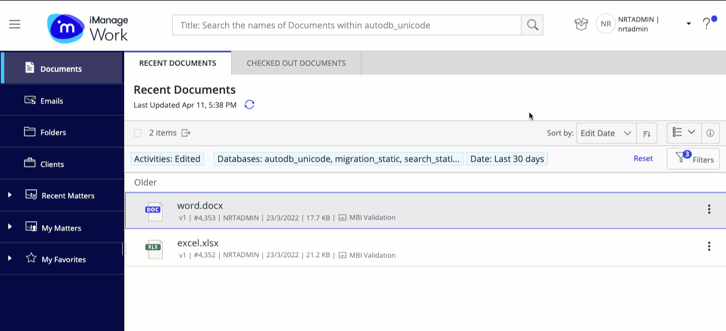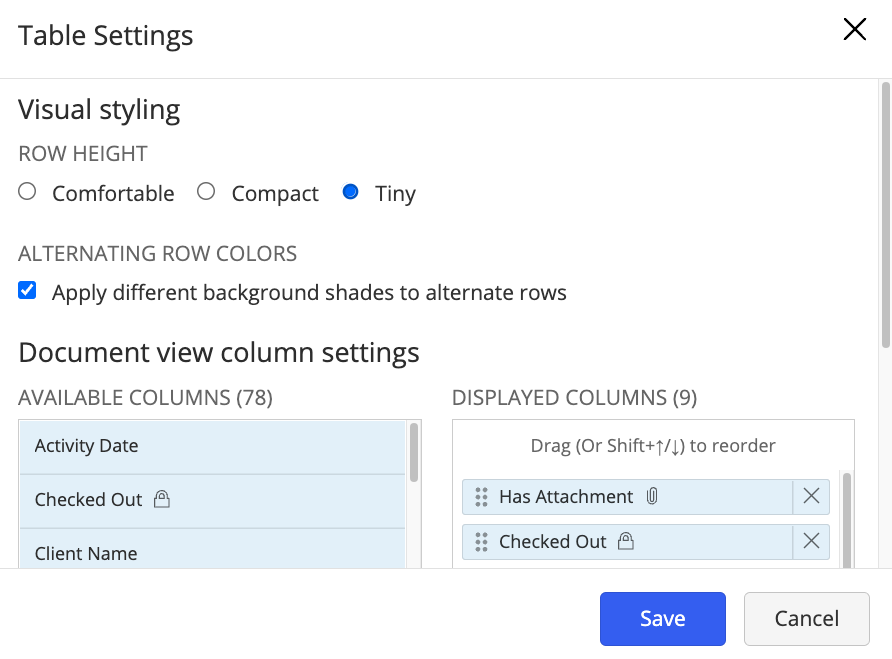To effectively use the information available within iManage Work, you can choose either the list view or grid view. The list view presents information in rows, and the grid view presents information in rows and columns. Use the view type selector available in the toolbar to switch between the list or grid view.
Both the list and grid view support progressive scrolling without pagination. Progressive scrolling applies to any containers (Folders, My Favorites, Recent Filed Emails, and so on) that contain many items as well as searches that return many results. When a container or list of search results includes more than 500 items, select Load more items in the toolbar to load an additional 500 items. Up to 5000 total items can be viewed in any container or list of search results
Figure: List view
Figure: Grid view
iManage Work supports maintaining your sort criteria in the list or grid view. When you switch from one view to the other, the sort criteria and the order in which the sort was done are remembered. Active grid view sorting is indicated on the Sort by button when switching to the list view, and list view sorting is indicated in the grid view by an arrow over the correct column if it is available.
When the column used in the grid view is not an available option in the list view, then the primary sort column name from the grid view is shown as the selected sort criteria in the list view, but, this sort criteria is not available if users sort the list view for a different metadata. If the sort criteria selected in the list view is not an available option in the grid view, then no sort column in indicated in the grid, but the sort order from the list view is maintained.
Configuring the Grid view
- Sorting: Users can sort on any column based on their preferences.
Figure: Sorting the grid- Select once to sort the grid.
- Select again to reverse the sort order.
Select once again to remove the sort.
Any changes performed to the sort order by you are remembered for the said view type, for example—Recent Documents, Recent Matters, and so on. The sorting behavior and user preference differs based on the various lists as explained in the below table:
Table: Sorting behaviorView
Sorting behavior
Recent Documents
Independent
Checked out document
Independent
Recently Filed emails / Emails Filed by me
Sort order selected by the user carries between the lists, for example—if the user sets the sort order to be Name on the Recently filed emails, then selecting the emails filed by the users maintains the same sort order.
Recent Matters
Independent
My Matters
Independent
Recent Clients
Independent
Favorites
Independent
Folders in workspace
Same for any workspace
Workspaces in client
Same for any client
Latest documents
Independent
Latest email
Independent
Document folder
Independent
Email folder
Independent
Search results
Independent
Independent implies that the sort option is applicable only to selected lists, for example—if users select Created date as the sort for the Recent Documents, and then browse to the Checked Out documents, the checked out documents can have a different sort applied, such as Author. When you toggle back to Recent Documents, it is sorted by Created Date.
- Adjusting row height: Select View Settings () and then choose one of the following options to set the grid's row height based on the available screen space:
- Compact
- Comfortable
- Tiny
- Alternating row colors: Select View Settings and then select the Apply different background shades to alternate rows option to apply alternate colors to the rows in the grid. The available colors are white and light gray.
- Grid columns: The columns in the grid view can be configured for all views in iManage Work.
The following columns in the Grid View display the date and time in the format of the browser locale specified:
- Created Date
- Edit Date
- Activity Date
- Date Received
- Date Sent
The default set of columns displayed are configured by your administrator in iManage Control Center. You can add new columns to the grid view from the Available Columns list in the Table Settings dialog box and re-order the columns as well.
Figure: Available and displayed column
User configured columns are given preference over administrator configured defaults.





